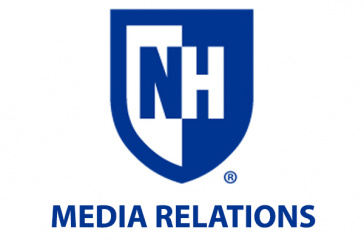The University of New Hampshire inspires innovation and transforms lives in our state, nation and world. More than 16,000 students from all 50 states and 71 countries engage with an award-winning faculty in top-ranked programs in business, engineering, law, health and human services, liberal arts and the sciences across more than 200 programs of study. A Carnegie Classification R1 institution, UNH partners with NASA, NOAA, NSF and NIH, and received $260 million in competitive external funding in FY21 to further explore and define the frontiers of land, sea and space.
UNH Moves to Test-Optional Admissions Policy

DURHAM, N.H.—Beginning next fall, high school students applying to the University of New Hampshire will no longer be required to submit standardized test scores with their application. A three-year pilot program will begin with students entering UNH in fall 2020.
“The data consistently shows that grades earned in high school over four years bear a much greater relationship to how well a student will do in college than standardized test scores do,” said Rob McGann, director of admissions and interim vice president for enrollment management. “Standardized testing certainly has some predictive value, but not as much as a student’s high school GPA.”
According to McGann, the university has two goals in moving to a test-optional policy. One, a greater diversity (race/ethnic, first generation, socioeconomic, gender, etc.) of applicants for whom standardized testing presents a real or perceived barrier to pursuing an education at a flagship university. Two, reinforcement that the most important part of the admissions decision-making process is a student’s high school classroom academic record. National data and the university’s own projections suggest these outcomes.
The decision not to require SAT or ACT scores from undergraduate applicants to UNH was made after extensive research that included reviewing admissions and UNH first-year academic performance data for past entering classes, which showed that high school grades and overall GPA best predict how well a first-year student will do at UNH. The Faculty Senate, a legislative body with representatives from every academic department, voted overwhelmingly in favor of moving to test-optional admissions. Students may still opt to include standardized test scores with their application, but there will be no preference given to students who do or do not include them.
According to The National Center for Fair and Open Testing, more than 1,000 four-year colleges and universities do not use the SAT or ACT to admit the majority of their undergraduate applicants.
Latest News
-
January 12, 2026
-
December 4, 2025
-
November 26, 2025
-
November 6, 2025
-
November 5, 2025













































